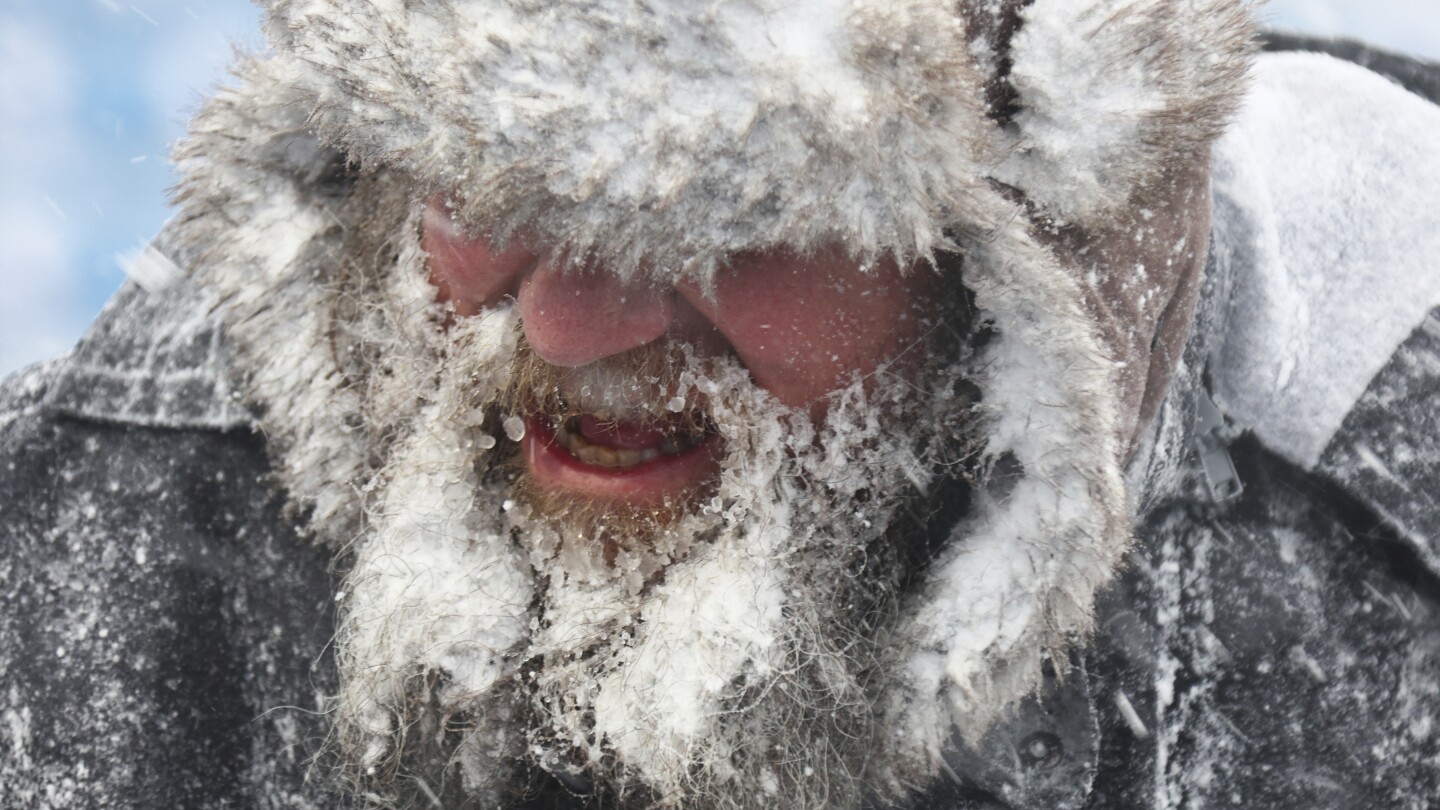PORTLAND, Ore. (AP) — A dangerous Arctic blast will continue sweeping across the U.S. on Monday and linger through at least midweek, prolonging a bitter cold that set record-low temperatures in parts of the country and threatens to further disrupt daily life, including an NFL playoff game and the first-in-the-nation presidential nominating contest in Iowa.
The National Weather Service said wind chills are expected to push temperatures 30 degrees below zero from the Northern Rockies to northern Kansas and into Iowa, testing the hardiness of caucusgoers willing to brave the deep chill on Monday.
“You can’t sit home,” former President Donald Trump told supporters Sunday. “If you’re sick as a dog, you say, ‘Darling, I gotta make it.’ Even if you vote and then pass away, it’s worth it.”
Arctic storms left at least four dead and knocked out electricity to tens of thousands in the Northwest, brought snow to the South and walloped the Northeast with blizzard conditions forcing the postponement of the Pittsburgh Steelers vs. Buffalo Bills NFL playoff game hosted in bone-chilling Buffalo, New York.
The game was scheduled to be held Monday after being cancelled Sunday.
New York Gov. Kathy Hochul, a Buffalo native, posted a video on X, formerly known as Twitter, showing near-whiteout conditions.
“Conditions right now in Orchard Park, where the game would have started moments ago,” she wrote early Sunday afternoon. “No visibility and dangerously high winds.”
The Bills invited diehard fans to help dig out snow-filled Highmark Stadium, offering $20 an hour for their labor.
“We made progress shoveling, but not much at all,” said Logan Eschrich, a storm chaser who made his way to Buffalo and pitched in.
It remains to be seen if the show will go on Monday afternoon. The weather service expects heavy lake-effect snow to push into upstate New York from Lake Erie, adding to the 1 to 2 feet (30.4 to 60.9 centimeters) of snow already blanketing the region. Snow fell at a rate of 2 inches (5 centimeters) per hour.
Sub-zero wind chills will grip much of the country, plunging to 50 degrees below zero in Montana and the Dakotas.
“It takes a matter of minutes for frostbite to set in,” the South Dakota Department of Public Safety said in a statement Sunday urging people to stay indoors.
Other parts of the country could see temperatures drop 25 to 40 degrees below normal, from the Rockies to the Ohio Valley.
As temperatures in Texas plunged, the state’s power grid operator appealed to residents to voluntarily conserve electricity Monday morning due to the cold weather causing “record breaking demand” for energy. A deadly freeze in 2021 left millions of Texas without power but state officials this week expressed confidence about the grid’s reliability as the cold front approached.
Freezing rain is expected to pelt parts of the Southern Plains and Southern Appalachians.
Even places like Florida won’t be spared from turbulent weather, with forecasts predicting showers and thunderstorms from Monday into Tuesday.
In Oregon, more than 120,000 homes and businesses were without electricity, most of them in the Portland metro area, a day after high winds and a mix of snow and ice brought down trees and power lines.
Some 100 trees toppled had over the weekend in a community just south of Portland, including one that fell on a house and killed a man. Two other people died of suspected hypothermia and a fourth died in a fire that spread from an open-flame stove after a tree fell onto an RV.
“Given the extent of the damage and the high level of outage events, restoration efforts will continue into the week and customers are encouraged to plan accordingly,” Portland General Electric said in a statement. The utility said it was watching a second weather pattern that could bring high winds and freezing rain on Tuesday.
Widespread power outages affecting tens of thousands were also reported Sunday in Michigan, New York, Pennsylvania and Wisconsin. In Nebraska, the Omaha Public Power District asked customers to conserve electricity to prevent outages.
Airports across the country were impacted. More than half of flights into and out of Buffalo Niagara International Airport were canceled. Scores of flights also were canceled or delayed at Chicago, Denver and Seattle-Tacoma airports.
___
Weber reported from Los Angeles. Associated Press journalists Russ Bynum in Savannah, Georgia; Nathan Ellgren in Des Moines, Iowa; Philip Marcelo in Long Island, New York; Nick Perry in Meredith, New Hampshire; and Julie Walker and Bobby Caina Calvan in New York City contributed to this story.

